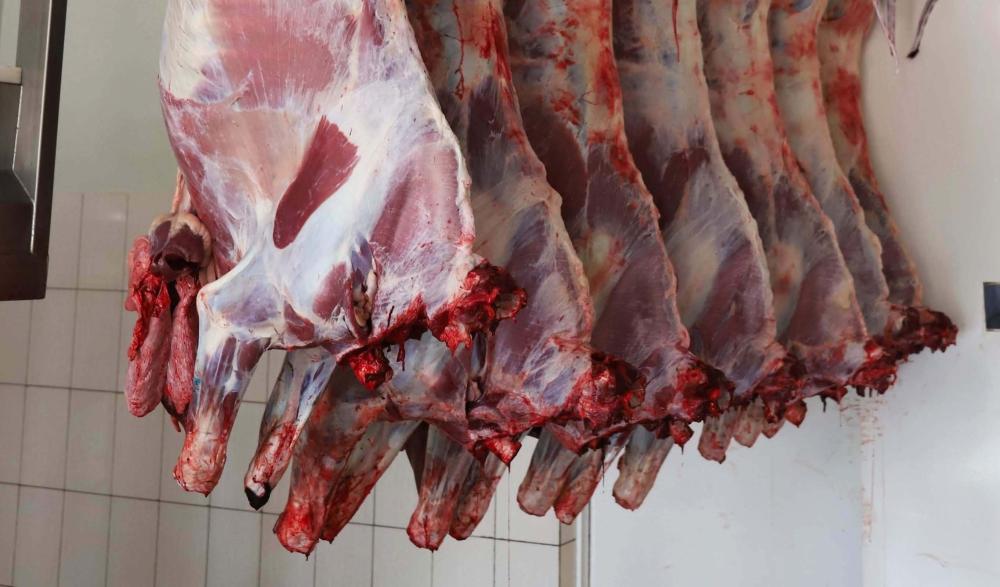Joan Mbabazi
Africa-Press – Rwanda. A new study led by researchers from Harvard T.H. Chan School of Public Health indicates that consumption of red meat, including processed and unprocessed red meat, was strongly associated with an increased risk of type 2 diabetes.
According to the study, every additional daily serving of processed red meat was linked with a 46 per cent greater risk of developing type 2 diabetes, and every additional daily serving of unprocessed red meat was associated with a 24 per cent greater risk.
Dieudonne Bukaba, a nutrition expert in Kigali, said the increased risk of type 2 diabetes associated with red meat consumption, especially processed red meat, is due to factors such as high saturated fat content, heme iron, the production of advanced glycation end products (proteins or lipids that become glycated after exposure to sugars) during cooking, the presence of nitrates and nitrites, and the lack of dietary fibre, all of which can contribute to insulin resistance and inflammation.
He further noted that red meat consumption should be based on health goals, nutritional needs, and potential risks, with a general recommendation for moderation and adherence to dietary guidelines that limit red meat intake.
Additionally, he urged portion control, consideration of alternative protein sources, and a focus on a balanced diet, while recognising individual dietary needs, as they are essential for making informed choices about red meat consumption.
“Consuming excessive red meat, particularly processed and fatty cuts, can pose various health risks, including an increased risk of heart disease, colorectal cancer, type 2 diabetes, obesity, hypertension, gout, kidney disease, and environmental impacts due to its production. These risks highlight the importance of moderation and choosing lean cuts when incorporating red meat into one’s diet,” he said.
According to Private Kamanzi, the chairman of Rwanda Nutritionists Society (RNS), if red meat is processed or cooked at a high temperature, it produces advanced glycation end products (AGEs). These are proteins or lipids that become glycated as a result of exposure to sugars. He noted that these chemicals are harmful and result in diabetes type 2.
Kamanzi also said that red meat is high in saturated fats, and compromises the sensitivity of insulin leading to insulin resistance and then diabetes.
“Experts recommend consuming about 115 grams of meat a day. But even if one limits it to the required quantity, as long as the red meat is exposed to direct fire, for instance, roasted meat, it is harmful. It is therefore advised to eat boiled meat rather than roasted one,” he explained.
Kamanzi added that consumption of red meat consists of other risks, for instance, it produces carcinogen compound chemicals that can cause cancer.
He also highlighted that excessive consumption of red meat triggers cardiovascular diseases as it contains saturated fats. If the red meat is cooked at high temperatures, especially when consumed with alcohol, it can cause gout, a painful form of arthritis.
“Consuming too much red meat can result in stomach and colon cancer as it contains fibres that complicate digestion. It can also cause constipation.”
However, if red meat is prepared well and consumed in the right proportions, it possesses a number of benefits, for example, it is rich in proteins which can’t be derived from plant foods. These proteins help to boost the immune system, Kamanzi stressed.
He added that red meat is also rich in iron, which is needed for the body to make blood, stressing that red meat has mineral salts that can prevent anaemia.
“Red meat has vitamin B, especially B12, which can’t be obtained from any other food. If you’re to consume red meat, don’t eat it alone, add some vegetables, cereals, or whole grains.”
Researchers from Harvard T.H. Chan School of Public Health also found that substituting a serving of nuts and legumes was associated with a 30 per cent lower risk of type 2 diabetes, and substituting a serving of dairy products was associated with a 22 per cent lower risk.
For More News And Analysis About Rwanda Follow Africa-Press






